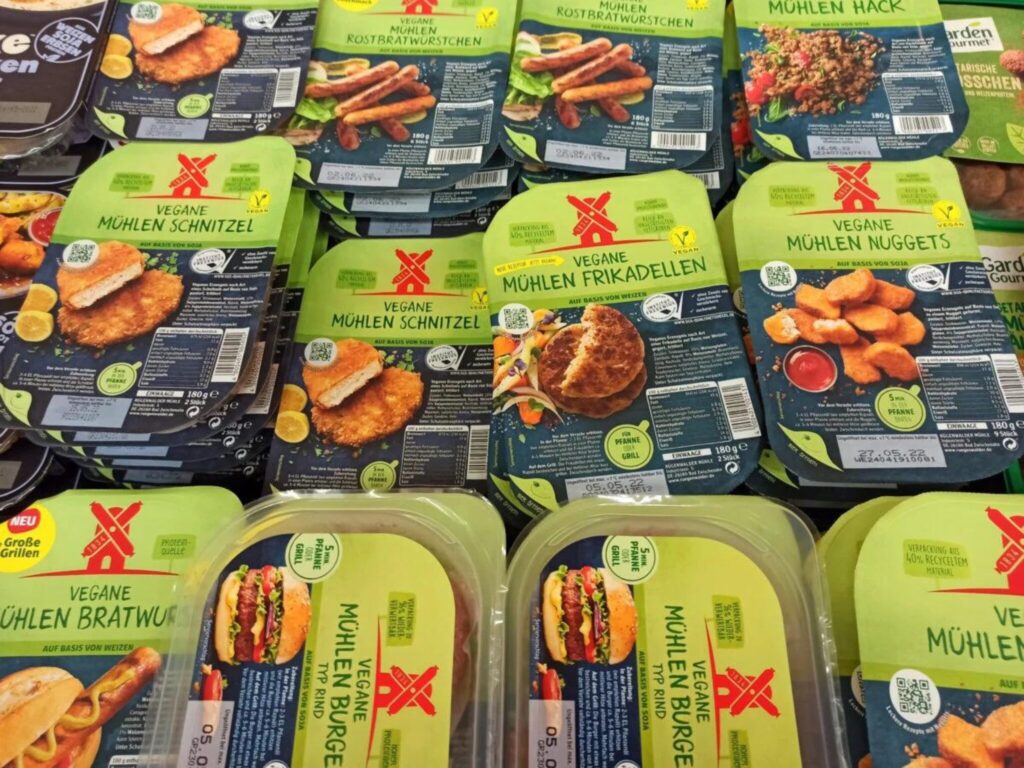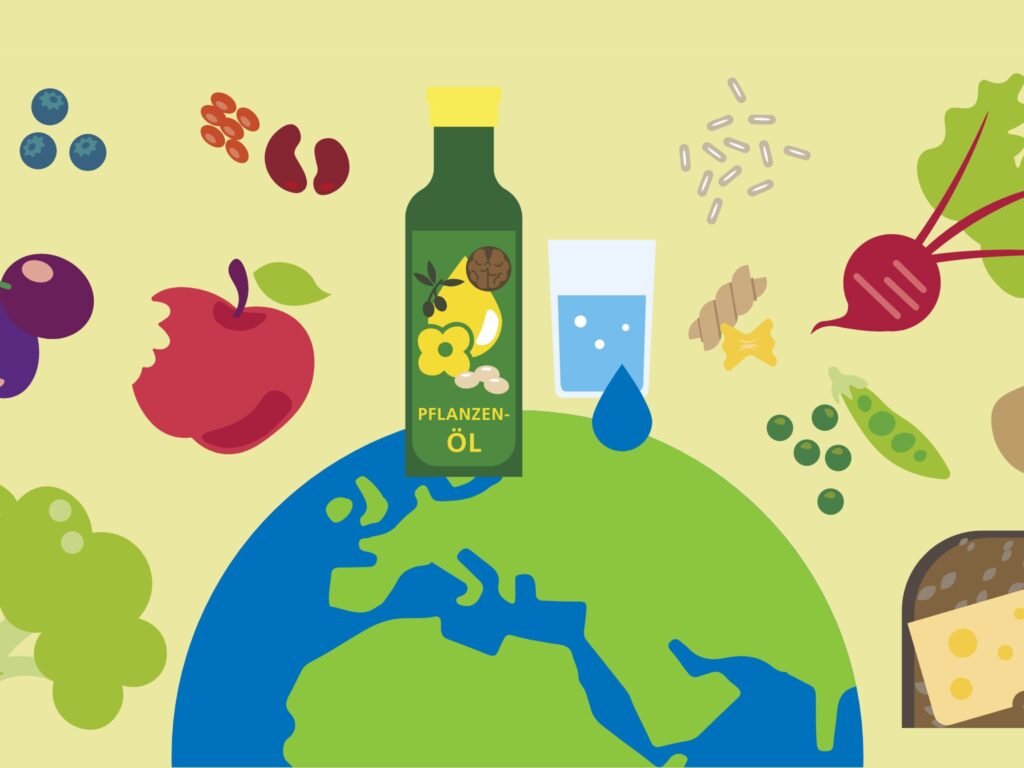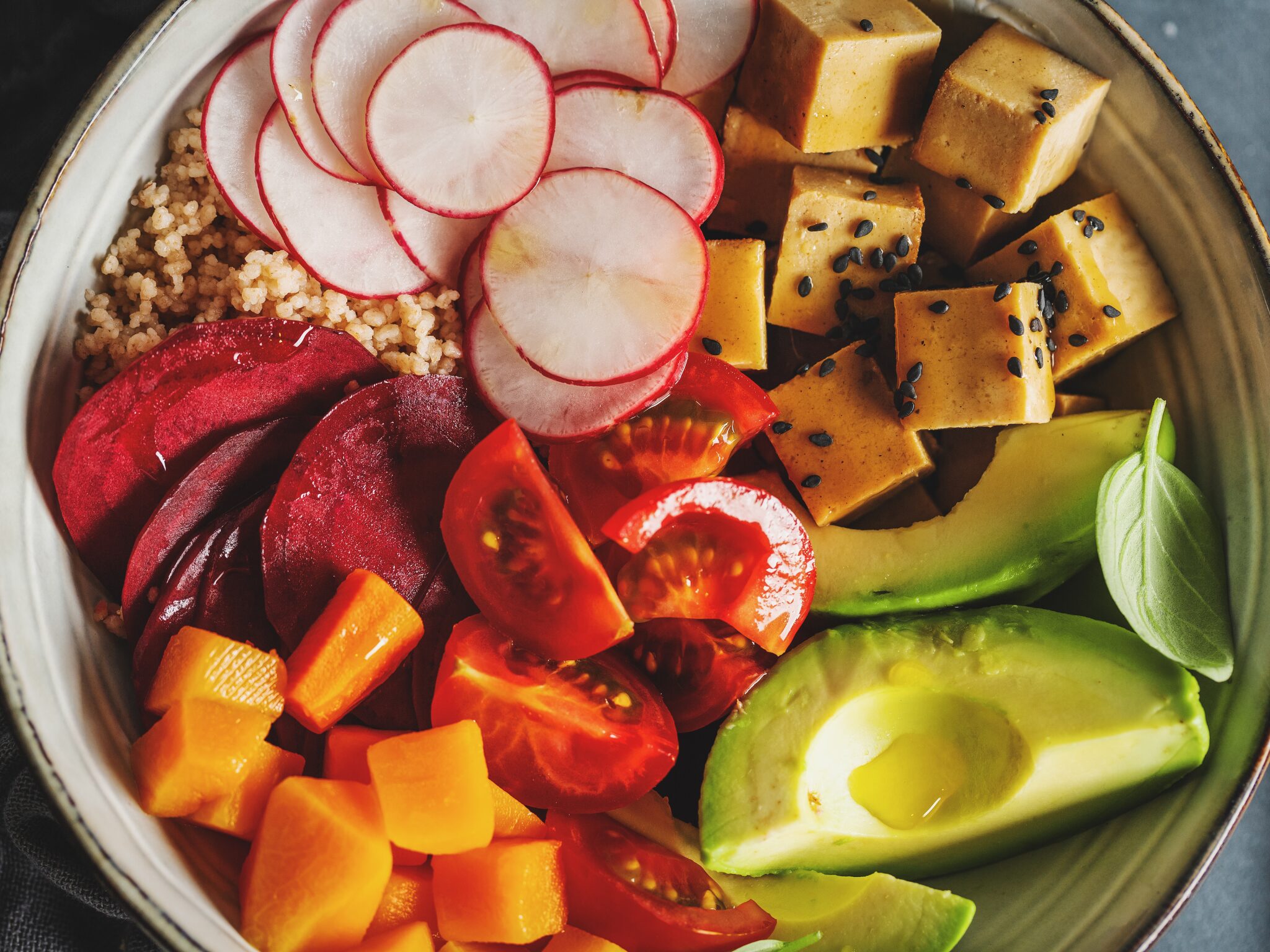German Nutrition Society Revises Health & Climate Stance on Plant-Based Diets
4 Mins Read
The German Nutrition Society has reassessed the impacts of plant-based foods and changed its official position on veganism, noting that it can be a ‘health-promoting’ diet.
The body responsible for creating Germany’s dietary guidelines, Deutsche Gesellschaft für Ernährung (DGE), says veganism is more climate-friendly than the average German diet and represents a “health-promoting diet”, after reevaluating its official position on plant-based foods.
The DGE had last published a position paper on plant-based diets in 2021, but said it has now taken more than just health into account when evaluating sustainable eating patterns. Environmental impact, animal welfare, and social benefits now also form part of its revised assessment.
There was an update in terms of the health dimension as well – previous position papers mainly looked at nutrient supply, but now, other parameters like blood lipid levels and the risk of diet-related diseases (such as cardiovascular diseases) have been included too.
The evaluation has led the DGE to make several new conclusions, softening its stance on vulnerable population groups eating vegan, championing the planetary benefits, and endorsing the nutrition completeness of a plant-based diet.
The move comes three months after the society updated its dietary guidelines to recommend halving meat consumption, limiting dairy intake, and eating more plant-based foods. It stated that the latter should make up at least 75% of Germans’ diets.
Plant-based diets healthy with proper supplementation

The DGE’s new position states that plant-based diets are a “health-promoting diet” for healthy adults, provided that they take supplementation for vitamin B12. It recommends a “balanced, well-planned selection of foods” and the sufficient intake of “potentially critical nutrients”, also via supplements if needed.
One such nutrient is iodine, which is usually sourced from seafood and dairy. “Plant-based milk alternatives are rarely fortified with iodine and contain very little iodine when unfortified. Choosing a plant-based drink fortified with iodine can help ensure adequate iodine intake,” the DGE states.
To meet iodine needs at home, the nutrition body recommends iodised and fluoridated table salt and foods made with it, as well as sea salt mixed with iodine-containing seaweed.
Similarly, vitamin A is also a crucial nutrient, whose central active form, retinol, is found exclusively in animal products. Plant-based foods contain precursors like provitamin A carotenoids, but these are needed in much larger amounts to convert into retinol. The most important precursor is beta-carotene, which is found in deep yellow, orange and green leafy vegetables and certain fruits.
“A sufficient supply of vitamin A in a vegan diet is, in principle, possible through the sole intake of provitamin A carotenoids, provided there are no disorders of fat digestion and the enzymes responsible for the conversion,” says the DGE.
Another significant change in the society’s stance surrounds vulnerable populations is that, previously, it explicitly did not recommend vegan diets for pregnant people, breastfeeding mothers, infants, children, adolescents, and the elderly, on the basis of limited data availability.
But now, the DGE says it’s making “neither a recommendation for nor against” plant-based diets for vulnerable groups, based on improved but still limited data. “Even if the previous wording ‘not recommended’ should not be understood as a blanket rejection of a well-planned vegan diet, the wording chosen in the new assessment does better justice to the current data available,” it outlines.
Vegan food better for the climate

The DGE acknowledges the planetary gains of a vegan diet, calling it “more environmentally friendly” than the typical mixed German diet heavy on animal products. It pointed to plant-based foods’ “great potential for reducing greenhouse gas emissions” as a factor.
Meat production alone is responsible for 60% of global food emissions, and generates twice as much CO2e as growing plants. Germans recognise this – meat consumption fell to record lows last year, with climate and health cited as the major drivers. It came as a large EU-backed survey revealed that 59% of Germans were already eating less meat in 2022 than the year before – the joint-highest reduction in the EU.
The country is also the largest market for plant-based food across Europe, thanks to the high percentage of flexitarians (estimated to be between 40-55% of the total population). Retailers have doubled down, with Lidl, Kaufland, Aldi and the Rewe Group (which opened a 100% plant-based store) all making vegan meat and dairy the same price as or cheaper than their conventional counterparts. Burger King announced a similar move, too.
Meanwhile, Germany’s government allocated €38M in its 2024 budget to promote alternative protein consumption and a switch to plant-based agriculture, as well as open a Proteins of the Future centre. And the country produced 17% more plant-based meat in 2023 than the year before, with its total value increasing by 8.5% to reach €583M.
“This new position ushers in a new era in nutrition policy in Germany,” said Anna-Lena Klapp, international nutrition and health lead at non-profit ProVeg International. “It takes vegan diets out of the shadows of the policy debate and places them front-and-centre instead.”
The Nordic nations, Taiwan and Canada have recently realigned their nutritional guidelines to better focus on plant-based foods too. France is being called upon to do the same. “We are delighted that this position has been published and we expect it to influence similar bodies around the world,” said Klapp.



